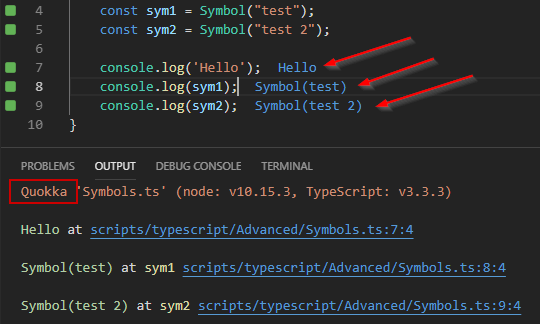If you are building a Single Page Application / JavaScript Web application using Visual Studio, you've probably already run into the overlap between tooling that surrounds npm and the tooling within Visual Studio. As web development moves further away from the bells and whistles needed from the IDE (unlike heavy server-side web technologies like ASP.NET MVC that are heavily dependent upon the IDE), separating a project from these 'features' can be not quite straight forward. While the practice of using Visual Studio for modern web development isn't as prevalent these days with much of the coding taking place in streamlined IDEs like Visual Studio Code, there are still a lot of projects that exist and have a hard time decoupling from Visual Studio, MSBuild, and ASP.NET because of their coupled nature. This process will help in this interim stage while the code is still fully integrated and run from Visual Studio.
One of these tasks is preventing Visual Studio from being responsible for building TypeScript and allowing your tooling (i.e. Webpack, Gulp, Grunt) to be in charge instead. The idea here is that your tooling has been configured to lint, minify, build, concat, bundle, copy, whatever all of your project files exactly as you desire. At this point you don't really need MSBuild involved in transpiling your JavaScript to TypeScript as it would be redundant and often times problematic. To prevent Visual Studio from doing any compilation of TypeScript preform the following steps:
This will generate a default configuration file for TypeScript compilation. Your web-client's code build process will need to point to this file and using it as a driver for the TypeScript compilation behavior.
If you still want MSBuild to handle your TypeScript compilation there are several options that will change the behavior:
1. Ensure a tsconfig file is added to the project and configured correctly
TypeScript and any build process you are using will work together based on the configuration in tsconfig.json. This file can be hand-rolled from scratch, or may have been generated for your project from a process like ng new and the Angular CLI. You can also generate a default tsconfig file (recommended approach as opposed to creating from scratch) using the following command:
tsc --init
This will generate a default configuration file for TypeScript compilation. Your web-client's code build process will need to point to this file and using it as a driver for the TypeScript compilation behavior.
2. Modify the .csproj project file to prevent TypeScript from compiling
Within Visual Studio, right-click your project and select the option to edit the .csproj file. These options are in a XML format and the following needs to be added:
<PropertyGroup>
<TypeScriptCompileBlocked>true</TypeScriptCompileBlocked>
</PropertyGroup>
If you still want MSBuild to handle your TypeScript compilation there are several options that will change the behavior:
One of the only primary use cases I can think allowing MSBuild to handle TypeScript compilation is for using TypeScript independently of a framework/app like Angular or React when using standalone in an ASP.NET MVC application. Otherwise the native build processes of your front-end stack are much better off being used to build TypeScript as opposed to MSBuild.




